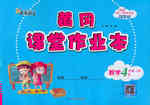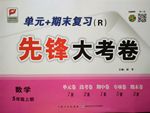题目内容
The concept of solitude (独处) in the digital world is almost non-existent. In the world of digital technology, e-mail, social networking and online video games, information is meant to be 36 . Solitude can be hard to discover 37 it has been given up. In this respect, new technologies have 38 our culture.
The desire to be connected has brought solitude to a(n) 39 as we’ve known it. People have become so 40 in the world of networks and connections that one can often be contacted 41 they’d rather not be. Today we can talk, text, e-mail, chat and blog (写博客), not only from our 42 , but from our mobile phones as well.
Most developed nations have become 43 on digital technology simply because they’ve grown accustomed to it, and at this point not 44 it would make them an outsider. 45 , many jobs and careers require people to be 46 . From this point of view, technology has changed the culture of work. Being reachable might feel like a 47 to those who may not want to be able to be contacted at all times.
I suppose the positive side is that solitude is still possible for anyone who 48 wants it. Computers can be shut 49 and mobile phones can be turned off. The ability to be “connected” and “on” has many 50 , as well as disadvantages. Travelers have ended up 51 on mountains, and mobile phones have saved countless lives. They can also make people feel 52 and forced to answer unwanted calls or 53 to unwanted texts.
Attitudes towards our connectedness as a society 54 across generations, Some find today’s technology a gift. Others consider it a curse. Regardless of anyone’s view on the subject, it’s hard to imagine what life would be like 55 daily advancements in technology.
36. A. updated B. received C. shared D. collected
37. A. though B. until C. once D. before
38. A. respected B. shaped C. ignored D. preserved
39. A. edge B. stage C. end D. balance
40. A. sensitive B. intelligent C. considerate D. reachable
41. A. even if B. only if C. as if D. if only
42. A. media B. computers C. databases D. monitors
43. A. bent B. hard C. keen D. dependent
44. A. finding B. using C. protecting D. changing
45. A. Also B. Instead C. Otherwise D. Somehow
46. A. connected B. trained C. recommended D. interested
47. A. pleasure B. benefit C. burden D. disappointment
48. A. slightly B. hardly C. merely D. really
49. A. out B. down C. up D. in
50. A. aspects B. weaknesses C. advantages D. exceptions
51. A. hidden B. lost C. relaxed D. deserted
52. A. trapped B. excited C. confused D. amused
53. A. turn B. submit C. object D. reply
54. A. vary B. arise C. spread D. exist
55. A. beyond B. within C. despite D. without
36-40 CCBCD 41-45 ABDBA 46-50 ACDBC 51-55 BADAD

 中考利剑中考试卷汇编系列答案
中考利剑中考试卷汇编系列答案 教育世家状元卷系列答案
教育世家状元卷系列答案 黄冈课堂作业本系列答案
黄冈课堂作业本系列答案 单元加期末复习先锋大考卷系列答案
单元加期末复习先锋大考卷系列答案
| |||||||||||||||||||||||||||||||||||||||||||||||||||||||||||